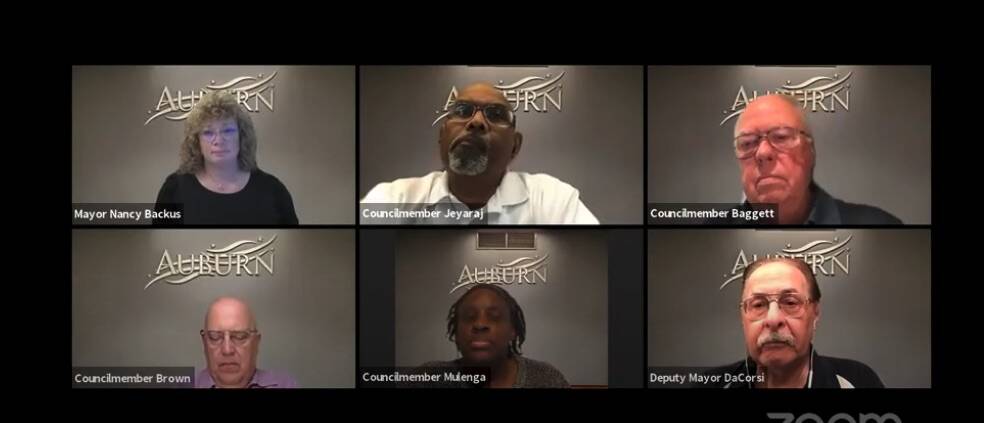Auburn is set to spend $14.8 million in federal funds to recover from the COVID-19 pandemic.
During its Sept. 7 meeting, the Auburn City Council approved a spending plan for $14.8 million awarded to the city by the federal American Recovery Plan Act (ARPA).
Since mid-July, an ad-hoc committee consisting of Deputy Mayor Claude DaCorsi and Councilmembers James Jeyaraj and Bob Baggett have worked to create a plan for spending the money.
Over the next three years, the city will use the money to aid recovering from the COVID-19 pandemic, Baggett said.
During a previous council study session on Aug. 23, Auburn Financial Director Jamie Thomas went over the categories for spending that the federal government outlined.
Now that the spending plan has been approved, here’s where the money is going:
• COVID-19 public health response: Around $4.2 million is going toward COVID-19 public health response, according to the ordinance. This money is intended to prevent the further spread of COVID-19 in Auburn, Thomas said. This could include improvements to medical facilities, purchase of protective equipment and encouraging vaccinations, Thomas said.
• Mitigate negative economic impacts: A little over $2.2 million was allocated to mitigate the negative economic impacts of the COVID-19 pandemic, according to the ordinance. This money is meant to support households, small businesses and businesses that were disproportionately impacted by the pandemic, Thomas said. This support could come in several forms, such as grants and small business loans, Thomas said.
• Services to disproportionately impacted communities: The largest sum of money — $6.9 million — will go to services for disproportionately impacted communities, according to the ordinance. The city will use census data on income to qualify communities for this money, Thomas said. “Based on that census data we are able to focus some of that ARPA money to promote healthy childhood environments, education and housing services,” Thomas said.
• Revenue replacement: The council allocated $800,000 to revenue replacement, according to the ordinance. This helps the city recoup the revenue they lost due to the pandemic, Thomas said. Federal guidelines have strict rules for how this money is used to replace revenue; the city can’t, for example, allocate it to the general fund, Thomas said. It has to be used for items that were budgeted prior to the pandemic, Thomas said.
• Administrative costs: The council allocated $550,000 to be spent on administrative costs, according to the ordinance. The money is for administration of the grants for economic recovery and to ensure the ARPA money goes to the communities who need it the most, Thomas said. “It’s mostly tied to the services to disproportionately impacted communities and making sure we’re connecting the right services to the right communities,” Thomas said.
The council did not allocate money to infrastructure or premium pay for essential workers, two other categories outlined by the federal government.
At the Sept. 7 meeting, Councilmember Chris Stearns expressed regret that no money had been allocated to premium pay for essential workers. Stearns said he considered making an amendment to re-allocate money from revenue replacement to premium pay, but didn’t in the end.
“As a city, we owe an immense debt of gratitude to the thousands of frontline workers in Auburn who put themselves and their families at risk during the pandemic,” Stearns said. “I do hope that we can come back and find a way to thank the workers who kept us safe and recognize what they’ve done.”
Request proposals for funds will go through the city’s finance department to ensure the proposed use is in alignment with the ordinance and federal guidelines. The finance department will submit quarterly reports to the council on the status of ARPA fund requests and approved requests.
The finance department will establish the procedures and requirements necessary for spending the money.



